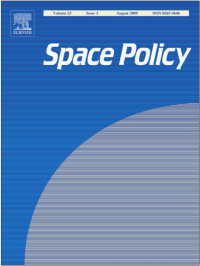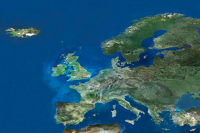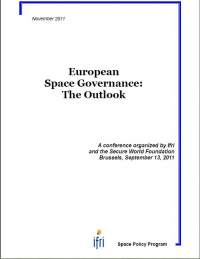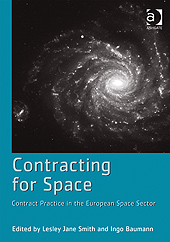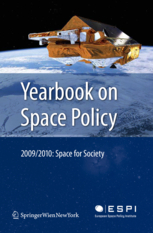With its draft Code of Conduct for Outer Space Activities, the European Union became visible in the debate on space security. This paper analyses this development, drawing on theoretical concepts in the scholarly debate about the ‘actorness" of the EU. The EU can indeed be considered as an...

Space
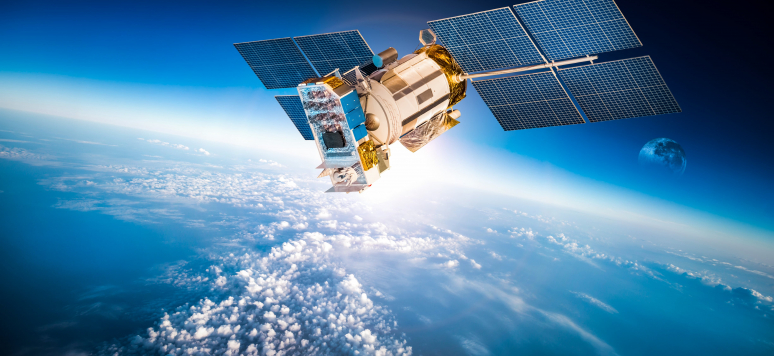
Space has become a crucial theme in the main international think tanks’ research activities as it entails important strategic, economic, and technological issues.
Since 2001, Ifri has integrated space in its research, notably by ensuring that the political dimension of scientific and human exploration programs is emphasized, and by supporting reflections on the Code of Conduct for Outter Space Activities.
Today, as part of its research agenda, Ifri mobilizes several of its centers and programs to transversally tackle the theme of space, through three main inputs:
- the competition of powers, driven by the Sino-American rivalry;
- critical points related to mastery of space, such as the issue of autonomous access to space or the mega-constellations necessary for the digital revolution;
- these developments’ challenges for Europe and its status as a space power.
Since the Summer 2020, Ifri has been coordinating a tripartite European Space Governance Initiative, together with two other renowned European think tanks: the Deutsche Gesellschaft für Auswärtige Politik (DGAP) in Germany and the Istituto Affari Internazionali (IAI) in Italy.
Research Fellow, Space
...Special Advisor to the President for European Affairs
...In 2012, several crucial decisions lie ahead, most notably at the ESA Ministerial Council next fall and regarding the status of space within the next MFF of the EU. These will reveal the degree of political will to pursue an ambitious ESP in times of economic and financial constraint.
For the third year in a row, the Paris-based French Institute of International Relations (IFRI), and the Secure World Foundation (SWF) joined together to organise their annual space conference. The event took place in Brussels on 13 September 2011, under the banner "European space governance:...
An ambitious Earth Observation (EO) policy could bring significant benefits to Europe both regarding the fight against climate change and the competitiveness of its EO industry and service sectors.
Europe is increasingly considering space as a useful tool to support Civil Protection (CP). Through a demand-driven approach, it intends to create new services tailored to the needs of the CP community.
The Ifri/SWF conference of 13 September 2011 provided an overview of the evolution of European space governance. It was convened almost two years after the adoption of the Lisbon Treaty and five months after the release of the European Commission (EC) Communication on a future European space...
Due to the wide number of space applications solving earthly problems in a broad range of issue-areas, space activities have a clear political dimension. In this article, the origins and causes of this increasing political relevance of space after the end of the Cold War are shown. The...
Space activities can be justified by a broad array of reasons, ranging from trans-utilitarian components (such as curiosity, discovery, knowledge, fascination, inspiration) to more utilitarian aspects (markets, jobs, communications, mobility, pace-setting technologies, among others). Clearly,...
The article provides an overview of the impact the policy framework for space activities has on commercial activities in Europe. It shows that the development of a space policy framework on the European level has, from the beginning, aimed at furthering commercial space activities and...
The purpose of this article is to analyse the impact of the financial and economic crisis on the space sector from a political point of view. Its focus is on the institutional space sector rather than on commercial space activities. In addition, Europe is placed at the centre of the analysis...
Aucun résultat





